
Normandy: Three days in a landscape saturated with history
Coming to terms with the Babel of D-Day commemoration on the Normandy beaches.

Coming to terms with the Babel of D-Day commemoration on the Normandy beaches.

How the rise and fall of Valois Burgundy opened the door to modern European power politics.

Read Deborah Cohen’s review in the NYRB!

Wolfgang Schäuble, Germany’s Finance Minister is widely seen, as one of the “most consequential European politician of his generation”. Joshua Rahtz’s recent NLR piece is

How Europe’s globalized space program intersects with “post”-colonial struggles in French Guiana.

Exploring Perry Anderson’s intellectual workshop.
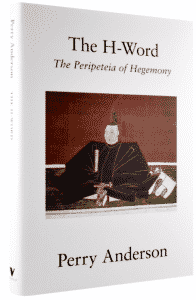
Reviewing Anderson on Hegemony in the FT.

As the Fed plans its next move, back channels to the bond markets are buzzing. What are some of those channels and what is the talk?

USDA food insecurity figures may severely understate the scale of the problem of hunger in 21s-century America, especially in rural areas.

Under the title “Horn of Africa: Pivot of the World” LMD published a great piece by Gérard Prunier last year on the truly mind-blowing

A lunchtime exchange with Andreas Dombret on the Eurozone, trans-Atlantic relations and populism.
Whose 1917? Which Russian revolution?

No Easter chocolate cheer on the Ivory Coast where the 2016-2017 cocoa price collapse is threatening to wreak havoc and derail a reform agenda.

Untangling how falling trade costs have and have not driven global integration.
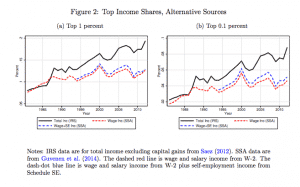
New insights into inequality dynamics and the importance of “S-corporations” from Guvenen and Kaplan.

Summers, Bernstein, Wolf and Setser dig into the new balance of financial terror between China and the US.

China’s FDI surge challenges both Germany and US to define national economic interests beyond the platitudes of “market economics”. In the German case this raises the issue of Europe and trans-Atlantic relations.

How the Czech republic and Chihuahua state are linked in the strategies of transnational suppliers. Comparing NAFTA and EU expansion as geoeconomic strategies in the post Cold War period.

Recent work by Sean Starrs and how it helps us to understand US-centric hierarchies of ownership and control in global capitalism.

The political economy of West Permian, the center of the fracking revolution and the site of EXXON’s latest strategic play.

How Larry Summers in the post-Vietnam moment sketched out space for economic policy thinking between Kissinger and Martin Feldstein and how he filled it with the vocabulary of the late Cold War.

Uncertainty rules. Can the protectionist turn be for real? Does anyone know? The FT, the Washington Post, the White House anyone?
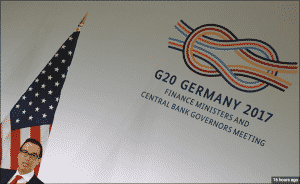
Why nixing TPP and TTIP does matter. How it fits in America’s political economy. And is there neoliberalism beyond free trade? Continuing the debate.
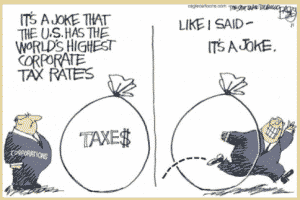
Fascinating report on which US corporations actually pay taxes and which don’t. Differential tax rates as a starting point for a mapping of political and economic power.

Abstract from Trump. Focus on the question of how the Republicans broke with globalization orthodoxy. Does that help us situate the current moment? Should it make us even more worried?

The extraordinary conjuncture of Egyptian surrealism, anti-fascism, Trotsky, Breton & World War II.
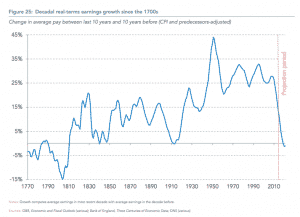
UK recovery since 2008 confirmed by latest budget forecasts as the slowest since WWII. Real pay growth stagnation is most severe in more than 200 years! The historic precedent for our current situation are the Napoleonic wars.

How the monolithic economism of the Remain campaign backfired and what remains amongst the wreckage. How May’s “protective state” is twinned with disaster capitalism.

What lies behind the asymmetry in the left and right-wing challenges to the current order? Political economy and political sociology.

After flogging and Brexit, today we crash-test an 8*8 matrix. Yes … really. Social theory in the spirit of Roadkill.

Do the stresses of globalization, the “left behind white working-class” or racism and authoritarianism explain the surge in support for right-wing populism? Can we escape an intellectual impasse? Back to Gramsci and Sartre?

How the “informal economy” was discovered in the 1970s and where we are now in our efforts to count how and where most people in the poorest countries work.

Staggering data from the ILO on India’s labour market. Only 7 % of Indian workers work on formal contracts in formal enterprises! Data that put one in mind of classic debates within German Social Democracy on how to characterize capitalist social structures.

As Sisi’s regime embarks on a tough IMF program it faces huge domestic economic pressures and a new conflict with Saudi Arabia over Syria that has shut off its vital oil supply.

How the fall of the Berlin Wall, globalization, judicial activism and the politics of social policy transformed the family policy regime of Germany from the 1990s onwards.
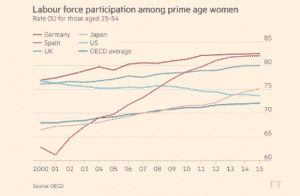
Discouraged male workers are a hot political issue in America. But what about women? The truly exceptional thing about the US is the retreat of prime age women from the labour market and the utter lack of policy to address this basic issue of modern society.